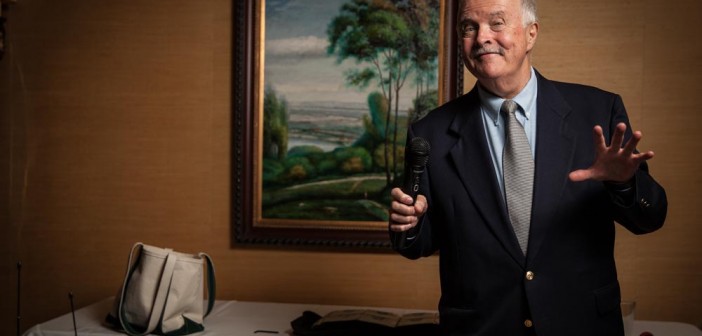“A Day in The Life” by the Beatles has been the unchallenged No. 1 radio request across all ages through the years. It took 34 hours to record and was the final cut on their eighth studio album.
It was 50 years ago today Sergeant Pepper taught the band to play.
The Beatles’ “Sergeant Pepper’s Lonely Hearts Club Band” was officially released around the world on June 1, 1967, but Flint heard it first on Monday, May 29th.
I recall the moment with crystal clarity. I was never happier to be alive.
Only the Beatles were the Beatles. Only the Beatles could command such an unparalleled amount of concurrent artistic respect, admiration and cooperation. It allowed them the opportunity to bring forth an awesomely powerful postmodern masterpiece. They were heroically regarded to a degree previously unknown in the new era of global communication, and subsequently enjoyed fierce professional firepower. Even Elvis had needed writers.
Rock & Roll music was suddenly elevated to an incredibly advanced level. Hints of the musical epiphany had come from tastes and touches in prior Beatles’ pieces, particularly their preceding “Revolver” album, but “Sergeant Pepper” was a complete, integral, unyielding, uncompromising whole. It discarded rules, dissolved barriers, shattered preconceptions and permanently changed the face of contemporary music. It went on to sell 32 million copies even as Rolling Stone magazine ranked it No. 1 in 2003 on its list of the “500 Greatest Albums of All Time.”
“Sergeant Pepper” had come to Flint as a brown paper package in the bottom of a Greyhound bus, surreptitiously sent to me by an old friend at Capitol Records in New York.
That night, it was all I played over WTAC for five solid hours.
With four towers and a killer AM signal at 600 kHz covering two nations and 25 Michigan counties as far north as “The Bridge,” tens of thousands were instantly introduced to inspirational genius.
Phones exploded and the Detroit stations screamed.
WTAC is gone, but its incredible, indelible memories live on.
Longtime Flint radio professional, Jim Baade, generously referenced the facility when he wrote, produced and directed, “Flint’s Best Rock,” a colorful tribute to WTAC’s eventual successor, Album-Oriented WWCK. “FM 105” had become America’s highest rated rock station by the early ‘80s, garnering numerous national broadcast and advertising awards.
“Flint’s Best Rock” won Best Documentary designation in the 2014 Flint Film Festival and emboldened Baade to further continue his local archival explorations with “Local DJ: The Story of Flint Rock & Roll.” He spent over two years working on it. When I saw the final product, I was overcome with boundless admiration and irrepressible joy. Good golly, Miss Molly! For someone so centrally featured, I had very little to do with the making of this film. It took on a life of its own.
In the week those Beatles were first introduced to American viewers in February 1964, I began what was to become an extended relationship with Flint, joining the staff of WTAC as nighttime DJ. I left the air after entering management in 1974, promoted up through the ranks to become station president in 1979. But for most of 1974, I was still “Peter C.” and all the kids at Flint Southwestern High listened regularly.
Little Lou Werbe was calling for requests and dedications all the time. He was a pleasant pain. I was amazed in June of 2014 when Lou contacted me anew. Werbe is now the chief operating officer at a major general contracting firm in L.A. with a client list that includes dozens of America’s top companies.
He wondered what it would take to have “Peter C.” as guest DJ at the 40th High School Reunion of Flint Southwestern’s Class of 1974. He said his parents wouldn’t hire me for his Bar Mitzvah back in the ‘60s as his friends’ folks had done, insisting on “live music”; but it’s never too late to do things right. I told Lou such an event would be my first time back in Flint as a disc jockey in 40 years, but if he’d send me the plane tickets, I’d be there.
He did, and I was.
During that Flint visit, Jim Baade interviewed me on a completely impromptu basis for six or seven hours over a four-day period as a prelude to preparing what became an exceptional work. We shot video all over the place.
Perhaps the most remarkable aspect of the final product is that Baade was able to match hundreds of random thoughts constantly surfacing during our many hours of recording with key elements of Local DJ – a memoir I originally published in 2002. On a purely subjective level, he successfully captured and harnessed an extended subconscious overview – brutally honest and vitally accurate in every way. It’s really rather spooky.
It’s hard describing how energized the town was in 1964 – full tilt boogie at ramming speed. Flint had become home to the highest paid factory worker in the history of the human race with benefits to match. The bulk of post-World War II GM employees, many having migrated from the Deep South, were enjoying first generation wealth and social elevation at an unanticipated, almost unfathomable level. The high was historic for both black and white. Thus, the rapid descent from “first” to “worst” initiated in the late ‘70s was proportionately profound. What was once a prototype for Ronald Reagan’s highly vaunted “Shining City on a Hill” has now become a challenged little town. But it has roots of glittering gold and if you were there, you were a part of it all.
“Local DJ: The Story of Flint Rock & Roll” is consistently presented as a microcosm – a powerful reflection of our national culture from the earliest days of GM onward with Flint offered as the apex of a social and musical evolution experienced by an entire baby boom generation – even now still waiting for their “blue jean baby queen.”
You will see a full half-century of tightly edited history from a thousand sources projected through a unique Flint lens, milestone events of lasting significance intertwined and energized through the throbbing, pulsing, pulverizing beat of red-hot Rock.
Not for little children, old ladies or small domestic pets.
It’s Rock & Roll!
“Baade captured and harnessed an extended, subconscious overview – brutally honest and vitally accurate in every way.”
Photos provided by Mike Naddeo & Jim Baade














